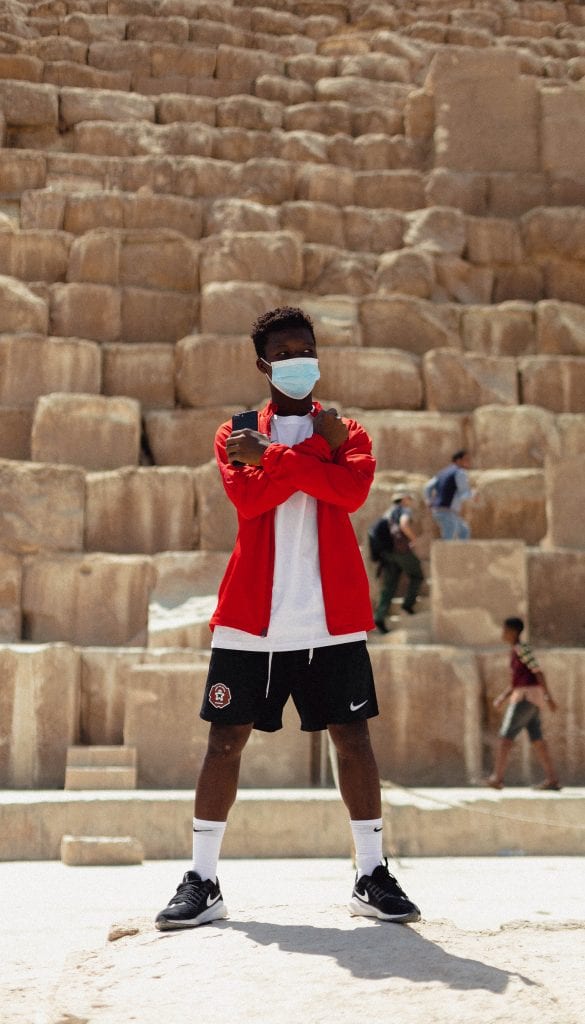On Wednesday 20th January 2021, Right To Dream announced a new long-term footballing partnership with the Mansour Group, a family-owned global conglomerate, that will help bring greater access, opportunity and equality through football across the globe.
Right To Dream, the global opportunity-creating ecosystem of football academies, professional football clubs and partnering colleges and universities, founded by visionary British social entrepreneur Tom Vernon, has formed a new €100 million partnership with the Mansour Group to help bring greater access, opportunity and equality through football.
A new entity, Man Sports, is being established for the partnership. Under the terms of the partnership, Man Sports will assume majority control of Right to Dream with Tom Vernon remaining the other significant shareholder.
Mr Mohamed Mansour, the Founder and Chairman of Man Capital, is the Chairman of the Board of Right To Dream Group, while his son, Mr Loutfy Mansour, the CEO of Man Capital, is a Board member.
Moreover, Mr Mohammed Wasfy joined Right To Dream as MD and board member of Right To Dream Egypt to lead this project and the development of the organisation in the country, supported by the Mansour Group.

We had the chance to speak with Mr Mohammed Wasfy to know more about Right to Dream’s plans in Egypt.
What’s the philosophy behind Right To Dream?
Everyone has the Right to dream. Right To Dream’s primary goal is to provide opportunities for children who may not necessarily be able to access them, develop their skills with great talent and love for the game of football, and have outstanding academic promise.
We work every day to give our players and student-athletes the best possible development experiences and give them the best chance of reaching their maximum potential via our academics through education, football, and most importantly, developing their character to the fullest.
We do this to create young men and women who can represent our organisation with class and quality and look beyond that and see how they can leverage their lives and privileged positions to improve others’ lives.
Football has a unique platform to achieve that, and as we have seen around the world, it is one of the few forces that can unify where colour, race, gender and religion consistently divide.

How was it founded?
In 1999, Tom Vernon, a former African scout for Manchester United, set up Right To Dream, which began on a small-scale as a single not-for-profit football academy that trained just a few boys on a dust pitch Accra, Ghana.
Vernon saw an opportunity to provide talented children (who were in circumstances that didn’t make it easy for them to do so, for example, limited finances) a platform in accessing football, education and character development; the opposite of a pay-to-play model.

What’s the recruitment process?
Trials are regularly held throughout the year. The academy will remain connected with communities and schools to support upcoming trials’ awareness.
How general is the word “equality” used at Right To Dream? Does it include women as well?
A Right To Dream academy provides equal opportunities for girls and boys.
The way that Right To Dream thinks behaves and works has equality alongside purpose through the centre of everything.
As we experience in Ghana, there is a significant lack of pre-existing football infrastructure for elite girls ages 10-13.
Appreciating the historical challenges for girls to access football, we know the need for a higher level of subtly and nuance when planning girls recruitment.
A period of more in-depth research will be undertaken to understand how we best approach enabling girls to access the academy. For families to feel reassured, they are safe and protected.
The new professional women’s football team will be our first step in providing equal opportunities in Egypt.

Tell us more about the past and current “heroes” who joined Right To Dream?
We have many players who have made it to top teams, for example, Kamaldeen Sulemana, Mohamed Kudus, Adelaide Armah, Abdul Majeed Waris, David Accam, Louisa Essuman, Francis Atuahane, Suwaibatu Muhamed, as well as others.

How is the organisation planning to proceed with the current Covid-19 situation?
We will continue to progress with the academy’s development and work in line with the COVID-19 protocol that is being set in place.
How will the organisation adapt to Egyptian culture?
Authenticity is a significant influence in the academy design. Our brand principles’ key elements must be reflected in any new Right To Dream academy.
For example, we have historically considered family and communal mixing as a key ‘must have’ brand principle.
This will be reflected in the communal courtyard feel of dormitories, using collaborative spaces for cultural, social activities.
We will add layers to this from a local perspective – such as round, low-level dining tables or breakfast carts, that take strong Egyptian rural community influences into the academy feel.

Why is it essential to include such an organization in Egypt?
Egypt is a football-loving country with a massive population of young boys and girls growing up watching and loving football. However, Egypt needs to improve football development and allow young kids to achieve their dreams.
Allowing young kids to experience the life of professional football at a young age will better prepare them to live their dreams and will enable them to do so correctly.
Tell us about the Right to Dream academy’s team visit to Egypt.
Ghana’s 15 to 18 years football team from the academy is here to play friendly matches with Egypt’s national under-20 football teams.
Sadly, due to covid, the team could not play with many teams, but we managed to make it work with the proper precautions, and we’re very excited about it.
We’re also excited to show Egypt what the academy is all about and show them our progress.
How did they do so far in their matches?
We won most of our matches, with 3-0 against Mokawleen and 3-1 against Zamalek.
In Ramadan, we will have another match with one of Egypt’s best youth teams, Geziret El-Ward from Mansoura.
Why did you choose to bring them to Egypt?
We chose to come to Egypt because it’s the strongest country in Africa in terms of football. Interacting with Egyptian teams and players is essential for their development.
When will you start recruiting Egyptian players to the academy?
We will be recruiting Egyptian players starting June till august. In the first year, we’ll recruit 30 players and officially start in January 2022 at the academy.
The following year, we’re aiming for 45 to 46 players, and the year after, we’ll recruit till we reach our capacity of 100 players.










